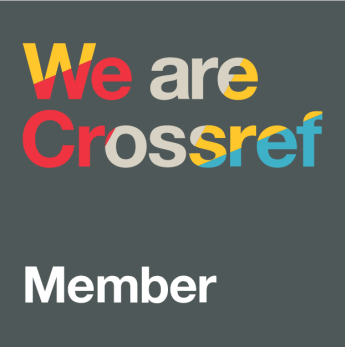KETERAMPILAN E-COUNSELING BAGI KONSELOR PENDIDIKAN DALAM MENINGKATKAN LAYANAN BIMBINGAN KONSELING DI SEKOLAH PADA ERA DIGITAL 5.0
DOI:
https://doi.org/10.22460/q.v5i2p67-78.2636Keywords:
E-Konseling, Masyarakat Digital 5.0, Konselor pendidikanAbstract
Pesatnya perkembangan teknologi membawa perubahan ke arah masyaarakat digital 5.0. perubahan ini berdampak ke semua sektor kehidupan termasuk didalamnya sektor pendidikan. Bimbingan dan konseling sebagai integral dari sektor Pendidikan harus mampu beradaptasi agar bisa terus relevan dengan perkembangan zaman. E-Counseling merupakan layanan bimbingan dan konseling yang terintergasi dengan teknologi dan sejalan dengan perubahan ke arah masyarakat digital 5.0. dalam E-Counseling konselor harus menguasai ketrampilan dasar konseling ditambah dengan penguasaan teknologi. Sampai sekarang belum ada metode pakem dalam pelakasaan E-Counseling, walaupun demikian layanan E-Counseling sangat direkomendasikan karena relevan dengan perkembangan digital 5.0. penelitian ini dilakukan dengan metode studi kepustakaan dengan tujuan untuk mengeksplorasi E-Counseling, dan implementasinya dalam era digital 5.0 bagi konselor Pendidikan.
References
Amichai-Hamburger, Y., Klomek, A. B., Friedman, D., Zuckerman, O., & Shani-Sherman, T. (2014). The future of online therapy. Computers in Human Behavior, 41(July 2015), 288–294. https://doi.org/10.1016/j.chb.2014.09.016
Asri, A. S., Zainudin, Z. N., Norhayati, W., Othman, W., Hassan, S. A., Aniza, N., Talib, M. A., & Yusop, Y. M. (2020). E-Counselling Process and Skils: a Literature Review. Journal of Critical Reviews, 7(13), 629–643. https://doi.org/10.31838/jcr.07.13.110
Bastemur, S., & Bastemur, E. (2015). Technology Based Counseling: Perspectives of Turkish Counselors. Procedia - Social and Behavioral Sciences, 176(1998), 431–438. https://doi.org/10.1016/j.sbspro.2015.01.493
Febrianti, T., & Wibowo, D. E. (2019). Kajian Hubungan Terapeutik dalam E-Counseling di Era Distrupsi. 2011.
Finn, J., & Barak, A. (2010). A descriptive study of e-counsellor attitudes, ethics, and practice. Counselling and Psychotherapy Research, 10(4), 268–277. https://doi.org/10.1080/14733140903380847
Foon, L. W., Zainudin, Z. N., Yusop, Y. M., & Wan Othman, W. N. (2020). E-counselling: The intention, motivation and deterrent among school counsellors. Universal Journal of Educational Research, 8(3 3C), 44–51. https://doi.org/10.13189/ujer.2020.081605
Fukuyama, M. (2018). Society 5.0: Aiming for a New Human-centered Society. Japan SPOTLIGHT, 27(August), 47–50. https://www.jef.or.jp/journal/
Haberstroh, S., & Duffey, T. (2004). Face-to-Face Supervision of Online Counselors: Supervisor Perspectives Brief Review of Online Counseling Services.
Hawke, P. (2017). “Don’t just listen: Tell me what to do!†Queensland Review, 24(1), 116–122. https://doi.org/10.1017/qre.2017.14
Hermansyah, H. (2020). PENGARUH PENGGUNAAN MEDIA SOSIAL BAGI KESEHATAN MENTAL ANAK REMAJA. National Nursing Conference, 1(1), 10–10. https://doi.org/10.34305/NNC.V1I1.116
Ifdil, I., & Ardi, Z. (2013). Konseling Online Sebagai Salah Satu Bentuk Pelayanan E-konseling. Jurnal Konseling Dan Pendidikan, 1(1), 15. https://doi.org/10.29210/1400
Kolog, E., Sutinen, E., & Vanhalakka-Ruoho, M. (2014). E-counselling implementation : Students’ life stories and counselling technologies in perspective Emmanuel Awuni Kolog University of Eastern Finland , Finland Erkki Sutinen University of Eastern Finland , Finland Marjatta Vanhalakka-Ruoho University of E. International Journal for Educational and Development Using Information and Communication Technology(IJEDICT), 10(3), 32–48.
Koutsonika, H. (2009). E-Counseling: the new modality. Online Career Counseling - a challenging opportunity for greek tertiary education. Undefined.
Nastiti, F. E. (Faulinda), & Abdu, A. R. (Aghni). (2020). Kajian: Kesiapan Pendidikan Indonesia Menghadapi Era Society 5.0. Edcomtech, 5(1), 61–66. https://doi.org/10.17977/UM039V5I12020P061
Pakpahan, R. (2016). Computer based national exam model: Its benefits and barriers. Jurnal Pendidikan Dan Kebudayaan, 1(1), 19–35. https://media.neliti.com/media/publications/124980-none-a7dd8e51.pdf
Permata, B. G. (2021). Dampak Negatif Teknologi terhadap Kesehatan Mental, Bagaimana Mengatasinya? https://www.sehatq.com/artikel/dampak-negatif-teknologi-terhadap-kesehatan-mental
Putri, W. S. R., Nurwati, N., & S., M. B. (2016). Pengaruh Media Sosial Terhadap Perilaku Remaja. Prosiding Penelitian Dan Pengabdian Kepada Masyarakat, 3(1). https://doi.org/10.24198/jppm.v3i1.13625
Richards, D., & Viganó, N. (2013). Online Counseling: A Narrative and Critical Review of the Literature. Journal of Clinical Psychology, 69(9), 994–1011. https://doi.org/10.1002/jclp.21974
Salleh, A., Hamzah, R., Nordin, N., Ghavifekr, S., & Joorabchi, T. N. (2015). Online counseling using email: a qualitative study. Asia Pacific Education Review, 16(4), 549–563. https://doi.org/10.1007/s12564-015-9393-6
Saputra, N. M. A., Hidayatullah, H. T., Abdullah, D., & Muslihati. (2020). Pelaksanaan Layanan Cyber Counseling Pada Era Society 5.0: Kajian Konseptual. Prosiding Seminar Nasional Bimbingan Dan Konseling Universitas Negeri Malang, 5, 73–79.
Situmorang, D. D. B. (2020). Online/Cyber Counseling Services in the COVID-19 Outbreak: Are They Really New? The Journal of Pastoral Care & Counseling : JPCC, 74(3), 166–174. https://doi.org/10.1177/1542305020948170
Suryaningrum. (2020). SIAPKAH INDONESIA MENYOSONG SOCIETY 5.0 DENGAN SEIRING PERKEMBANGAN BIG DATA YANG SEMAKIN PESAT? https://socs.binus.ac.id/2020/11/01/siapkah-indonesia-menyosong-society-5-0-dengan-seiring-perkembangan-big-data-yang-semakin-pesat/
Tyora, F. Y., Syarira, H. N. A., Alkautsar, M. H., Maharani, S., & Audrey, V. (2021). Pengaruh Cyberbullying di Media Sosial Terhadap Kesehatan Mental. Jurnal Penelitian Pendidikan Pancasila Dan Kewarganegaraan, 1(8), 8–14.
Wells, R. (2021). The Impact and Efficacy of E-Counselling in an Open Distance Learning Environment:A Mixed Method Exploratory Study. Journal of College Student Psychotherapy, 00(00), 1–18. https://doi.org/10.1080/87568225.2021.1924098
Wibawanto, H. (2016). Generasi Z dan pembelajaran di pendidikan tinggi. Simposium Nasional Pendidikan Tinggi, 1–12.
Zamani, Z. A., Nasir, R., & Yusooff, F. (2010). Perceptions towards online counseling among counselors in Malaysia. Procedia - Social and Behavioral Sciences, 5, 585–589. https://doi.org/10.1016/j.sbspro.2010.07.146
Downloads
Published
How to Cite
Issue
Section
License
Quanta: Jurnal Kajian Bimbingan dan Konseling dalam Pendidikan is licensed under a Creative Commons Attribution-ShareAlike 4.0 International License. Authors who publish with the Quanta Journal agree to the following terms:
- Authors retain copyright and grant the journal right of first publication with the work simultaneously licensed under a Creative Commons Attribution License that allows others to share the work with an acknowledgment of the work's authorship and initial publication in this journal.
- Authors are able to enter into separate, additional contractual arrangements for the non-exclusive distribution of the journal's published version of the work (e.g., post it to an institutional repository or publish it in a book), with an acknowledgment of its initial publication in this journal.
- Authors are permitted and encouraged to post their work online (e.g., in institutional repositories or on their website) prior to and during the submission process, as it can lead to productive exchanges, as well as earlier and greater citation of published work.

























